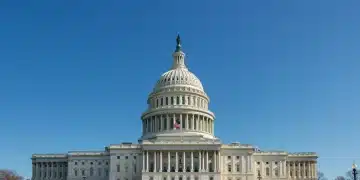Medicare funding cuts protests: the rising voices for change
Anúncios
Medicare funding cuts threaten healthcare access for millions, leading to reduced services, increased costs, and a pressing need for community activism and legislative reform to protect this vital program.
Medicare funding cuts protests are becoming a pressing issue, as citizens express their concerns over potential impacts on healthcare. Have you noticed how these protests are shaping public discourse and policy decisions? Let’s dive into the story behind the protests and what they mean for the future of healthcare.
Anúncios
Understanding Medicare funding cuts
Understanding Medicare funding cuts is essential for grasping the current challenges facing healthcare in the United States. These cuts can affect millions of seniors and low-income individuals who rely on Medicare for essential services.
The purpose of Medicare funding
Medicare funding is meant to support various healthcare services for eligible individuals, ensuring they receive necessary medical care. However, when funding is cut, it can lead to significant limitations in available services, which affects access to care.
Anúncios
What are the consequences of funding cuts?
Funding cuts can result in:
- Reduced access to doctors and specialists.
- Longer wait times for medical procedures.
- Denial of coverage for necessary treatments.
- Increased out-of-pocket expenses for patients.
These changes not only impact individual patients but also strain the healthcare system overall. With fewer resources available, healthcare providers may become overwhelmed, leading to decreased quality of care.
How do funding cuts affect different groups?
Various groups are affected differently by Medicare funding cuts. For instance, seniors often face challenges in accessing timely care, while low-income families may struggle to afford necessary medications. Moreover, rural communities can experience a lack of healthcare providers, worsened by funding issues.
In the face of these challenges, many advocates and organizations are fighting to protect Medicare funding. They emphasize the importance of maintaining these funds to ensure that all individuals have access to quality healthcare without undue financial burden.
Ultimately, understanding the depth of Medicare funding cuts enables everyone to engage in important discussions about health policy and advocate for necessary changes. It is a vital topic that deserves attention, as it impacts the health and well-being of countless individuals across the nation.
The impact of funding cuts on healthcare access

The impact of funding cuts on healthcare access is significant and worrying. When funding for programs like Medicare is reduced, the consequences ripple through the healthcare system, affecting both patients and providers.
Access to Care
Reduced funding leads to diminished access to essential healthcare services. Patients may find it harder to get appointments with their doctors or specialists.
Consequences for Patients
Some of the effects include:
- Increased wait times for treatments.
- Fewer healthcare providers accepting Medicare.
- Higher costs for patients who may need to pay out of pocket.
- Limited availability of vital medical equipment and therapies.
These barriers not only affect individual patients but can lead to more severe health issues across communities. For instance, when patients delay care due to concerns over access, their conditions may worsen, necessitating more intensive treatment in the future.
Community Health Impacts
Communities can also feel the strain of funding cuts. Hospitals and clinics may experience financial difficulty and might have to reduce services or even close their doors. This reduction in services can result in:
- Increased emergency room visits.
- Higher rates of hospitalization for preventable conditions.
- Decreased preventive care services, leading to health declines.
Access to mental health services may also suffer, as funding cuts can limit available programs and support networks. This lack of resources can lead to higher rates of untreated mental health conditions, further impacting the overall health of the community.
As the debate over funding cuts continues, it’s crucial to understand the far-reaching effects these changes can have on healthcare access. By staying informed and advocating for essential funding, communities can work toward ensuring better health outcomes for all.
Grassroots movements and protests
Grassroots movements and protests are crucial for raising awareness about important issues, including Medicare funding cuts. These movements often begin at the community level, where individuals come together to voice their concerns and advocate for change.
The Role of Grassroots Movements
Grassroots movements empower everyday citizens to take action. They mobilize people to participate in protests, write letters, and engage with policymakers. This collective effort can influence public opinion and government decisions.
How Protests Amplify Voices
Protests serve to amplify voices that might otherwise go unheard. Through organized events, individuals can :
- Share personal stories about how funding cuts impact their lives.
- Engage local media to highlight their causes.
- Unite individuals from diverse backgrounds around a common goal.
- Encourage others to join the fight for better healthcare policy.
The presence of demonstrators in public spaces shows the urgency and importance of their message. This visibility can sway the perceptions of those in power.
Successful Grassroots Campaigns
Many successful campaigns have stemmed from grassroots movements. For example, when communities band together, they can effectively lobby for legislative change. People can rally support for:
- Protecting existing healthcare funding.
- Increasing awareness about the risks of funding cuts.
- Advocating for comprehensive healthcare reforms.
These efforts foster a sense of solidarity and can lead to significant changes in policy. The power of grassroots activism highlights how collective action can spark conversation and prompt change.
As citizens continue to advocate for their rights, the strength of grassroots movements will remain a vital element in the fight against Medicare funding cuts. Engaging in these movements not only raises awareness but also helps protect crucial healthcare services for those in need.
| Topic | Description | Impact |
|---|---|---|
| Reduced Access | Fewer doctors and specialists available | Longer wait times and limited care |
| Higher Costs | Patients pay more out-of-pocket | Financial strain on seniors and families |
| Fewer Services | Cuts reduce therapy and mental health access | Worsened long-term health outcomes |
| Rural Impact | Small-town hospitals may close | Access gaps in isolated areas |
| Protests Rise | Communities protest for Medicare funding | Pressure builds on lawmakers |
| Policy Response | Officials propose new healthcare bills | Possible reforms and budget reviews |
Political responses to Medicare protests
Political responses to Medicare protests reflect the growing concern over healthcare access and funding. As citizens express their discontent, lawmakers must respond to the voices of their constituents.
Understanding Political Responses
When large groups of people protest, it catches the attention of politicians. They often feel pressured to address these issues publicly. This can lead to:
- Public statements from elected officials.
- Proposals for new legislation or amendments to existing laws.
- Increased funding discussions for Medicare programs.
- Town hall meetings to engage directly with the community.
The reactions can vary greatly, depending on the political climate and the specific concerns raised during the protests.
Effects on Legislation
Protests can influence legislation significantly. For instance, if protests highlight the negative effects of funding cuts, politicians may reconsider their stance and prioritize healthcare funding. They may push for laws that:
- Protect existing Medicare funding.
- Increase funding for healthcare access in underserved areas.
- Expand coverage for seniors and low-income individuals.
Partisan differences can complicate these conversations. While some lawmakers will advocate for changes based on protest feedback, others may resist adjustments.
The urgency of these protests often leads to heightened debate among politicians. They may present different proposals, attempting to connect with voters’ needs while remaining true to their party’s platform. Additionally, grassroots movements can sway public opinion, which in turn affects political responses.
Community Engagement and Response
Lawmakers also engage with their communities through forums and discussions. They offer platforms where constituents can voice their concerns directly. This creates opportunities for:
- Building trust between politicians and voters.
- Understanding the specific impacts of Medicare funding cuts.
- Collaborating on potential solutions to healthcare access issues.
These dialogues not only enhance accountability but also empower citizens to take part in the political process. Ultimately, the political responses to protests shape the future of Medicare funding and healthcare access across the country.
Future of Medicare amidst funding challenges
The future of Medicare amidst funding challenges raises important questions for millions who depend on this crucial program. As funding cuts loom, many are concerned about how these changes will impact healthcare access and quality.
Current Challenges Facing Medicare
With funding being scrutinized, several factors intensify concerns. Some of these challenges include:
- Increasing healthcare costs that outpace funding increases.
- Demographic shifts with an aging population requiring more services.
- Political debates over healthcare spending and priorities.
- Potential cuts to essential services provided under Medicare.
These challenges highlight the delicate balance policymakers must maintain to sustain Medicare for current and future beneficiaries.
Potential Changes and Reforms
To adapt to these challenges, various reforms may be proposed. These could involve:
- Adjusting eligibility requirements to ensure sustainability.
- Implementing cost-control measures for healthcare providers.
- Exploring alternative funding options or increased tax revenues.
- Enhancing the efficiency of healthcare delivery through technology.
Such changes are discussed among lawmakers as they weigh the implications for seniors and low-income individuals relying on Medicare.
Advocacy and Public Awareness
Public advocacy plays a crucial role in shaping the future of Medicare. Grassroots movements and protests raise awareness about the importance of maintaining funding levels. They remind leaders that many individuals depend on this program for their health and well-being.
As discussions continue, many urge for a comprehensive approach to reform. Engaging the community, listening to the concerns of beneficiaries, and addressing funding concerns create a more focused narrative surrounding Medicare’s future.
The success of Medicare in the coming years will hinge on how well these challenges are met. By fostering strong public support and implementing thoughtful reforms, the program can continue to serve its vital role in the healthcare landscape.
The Future of Medicare and Its Importance
The future of Medicare faces many challenges, but also opportunities for improvement. As funding cuts threaten the program, it becomes crucial for lawmakers to listen to the voices of the community and consider the needs of seniors and low-income individuals.
By advocating for necessary reforms and maintaining funding levels, we can ensure that Medicare continues to provide vital services. Grassroots movements and protests highlight the importance of this program and keep the conversation going.
The road ahead may be tough, but with collective effort and commitment, we have the power to shape a bright future for Medicare.
FAQ – Frequently Asked Questions about Medicare Funding Cuts
What are Medicare funding cuts?
Medicare funding cuts refer to reductions in financial support for the Medicare program, potentially affecting healthcare services for beneficiaries.
How do funding cuts impact seniors?
Funding cuts can lead to reduced access to healthcare, longer wait times for services, and increased out-of-pocket costs for seniors relying on Medicare.
What actions are citizens taking against funding cuts?
Citizens are participating in grassroots movements and protests to advocate for maintaining Medicare funding and raising awareness of healthcare access issues.
What can lawmakers do to address Medicare funding challenges?
Lawmakers can engage with communities, listen to concerns, propose legislative reforms, and prioritize healthcare funding to ensure the sustainability of Medicare.





